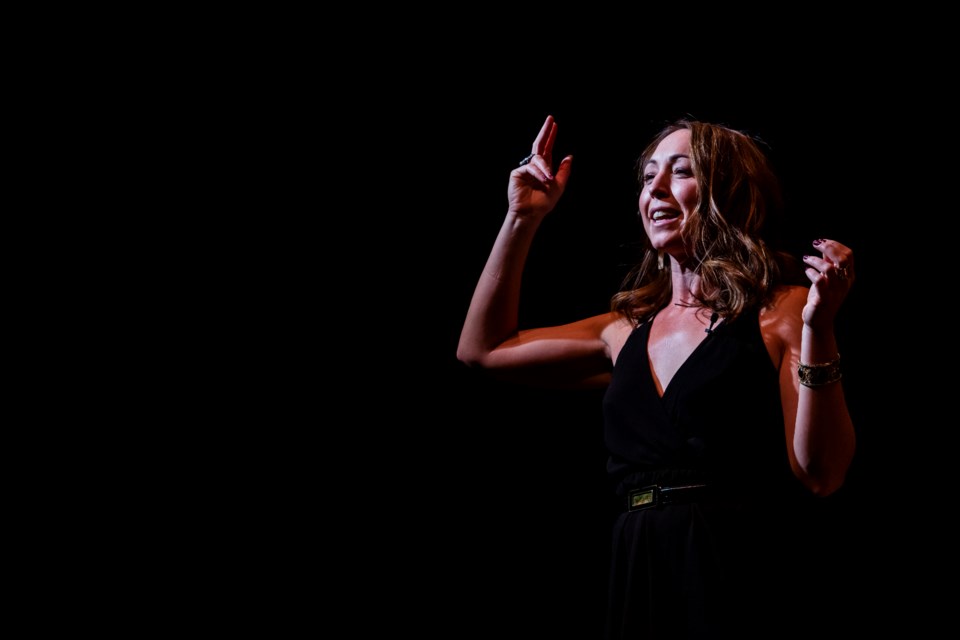After six years as executive director of Longmont Community Justice Partnership, or LCJP, Kathleen McGoey has stepped down.
LCJP’s mission is to build community through collaborative and inclusive restorative practices and give people the opportunity to heal and create justice in their community and the world, according to the website.
McGoey started with LCJP in 2013 as a bilingual programs manager, before transitioning into a leadership role that helped shape the work and direction of the organization moving forward.
“My experience with LCJP and this entire community has been the culmination of many of my goals and dreams,” McGoey said in her farewell video.
When she started, LCJP was facing challenges with staff turnover and leadership changes that caused a destabilizing effect, McGoey said. As a program manager, she had already worked hundreds of cases and knew the volunteers and law enforcement officers active in the program. She knew she wanted to use the relationships she had built to strengthen the organization.
Building trust and connection are fundamental parts of the restorative justice process, McGoey said. Restoring trust is key, particularly in relationships with law enforcement officers. The connection restorative justice creates provides another tool for officers to empathize with involved parties, shifting from transactional encounters to something more dialogue-based, she said.
“In a restorative justice conference, all you’re asked to do is tell your truth. No ‘I’m right, you’re wrong,’ in the dialogue, only holding space for each other. It can dramatically change the sense of community,” McGoey said. “Conflict is an opportunity to gain perspective and become changed. It begins with an internal sense of staying committed to empathy.”
Officer Staci Stallings, a school resource officer at Silver Creek High School and a police officer for 14 years, noted the growth of LCJP under McGoey’s guidance. Stallings, since discovering the concept of restorative justice, has sought training on the topic. She applies the skills she has learned from restorative justice in her work with students as an SRO.
“With Kathleen, there was a shift to prioritizing relationships with officers and LCJP. When you have these relationships, officers are more approachable, which leads to more referrals for restorative justice,” Stallins said. “I attribute it to Kathleen and the LCJP staff that officers are more open to the restorative process. It helps prevent us from feeling jaded and burnt out, the more often restorative practices are used. It humanizes the relationships between the public and law enforcement officers.”
Just like Stallings, McGoey worked to foster restorative practices in schools throughout Colorado, providing training and consultation.
“Younger people can internalize restorative practices better, and at an earlier age it becomes easier for them to internalize the ideas. It becomes comfortable and natural, and our youth-involved conferences take a third the time as adult conferences, because they haven’t internalized a sense of blame,” McGoey explained.
During her tenure, LCJP has facilitated more than 800 restorative justice cases involving more than 2,000 parties and their families.During the pandemic, LCJP saw a decrease in case referrals as courts and jails closed in March of 2020. McGoey helped transition the restorative justice work into a virtual space. More than 48 processes were held online in the last year, all volunteer led.
“What they did opened up more creativity in navigating the process, and it really spoke to the commitment of the volunteers,” McGoey said.
“People were really struggling through isolation. Families told staff and volunteers about other problems, unrelated to their case or LCJP. Restorative justice became a lifeline for some of these people.”,” McGoey said.Looking to her future, McGoey plans to continue her work in restorative practices and bring the ideas to a larger scale. She looks forward to working with workplaces, churches and other non-profit organizations to use these practices to foster a more relational culture and respectful work environments.
She’ll continue working in Colorado, as well as nationally, with training and consultations. Part of that will involve working with the National Center on Restorative Justice, alongside her colleague Dr. Lindsey Pointer, who worked with McGoey and LCJP in 2014. The pair also published a book, The Little Book of Restorative Teaching Tools, as part of a series called The Little Books of Justice and Peacekeeping.
LCJP will continue its work with restorative justice for the community, currently under the leadership of Shalene Onyango, interim executive director.
Onyango will continue LCJP’s goal of incorporating more restorative practices into schools through relationship building.
“Part of the goal is making restorative justice applicable beyond an alternative to the criminal justice system. It is a belief structure for every relationship, not just a way to keep people of color and kids out of jail. It’s a relationship process that takes emotional work,” Onyango said.
Looking to the future, Onyango realizes there are big shoes to fill but is excited about the possibilities.
“With Kathleen leaving there is absolutely a hole in the organization when it comes to skills, relationships and institutional knowledge. Still, it opens up an opportunity for fresh perspectives, new eyes and new people,” she said.
Correction 4/22/21: Updated and corrected information from National Center for Restorative Justice to National Center on Restorative Justice and updated link to appropriate organization.



